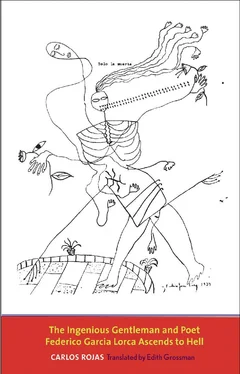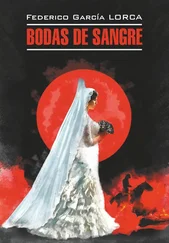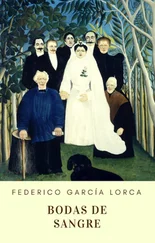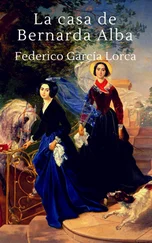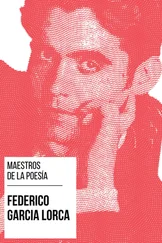Whoever pays here for the sin of being born or, for that matter, of dying, deserves to be my brother in hell. I sense this at first and then deduce it, based on the illusions he invokes on the stage of his theater. It is written, however, that we who are dead will not see or hear one another in the orchestra sections along this spiral. I called to him so often in vain, among the empty seats, as the gentlemen in top hats, the sleepy goblins, the monarchs with ruffs at the neck, the vines on the terraces, the clouds of blackbirds, or the squadron of condottieri moved across the stage! “Who are you? Where are you from? What were you called among men?” My voice sounds enlarged by an echo, which gives it the tone of a baritone cantor, but no one hears me and no one answers. Only silence descends and remains.
On the other hand, I wouldn’t like to see or speak with the damned sinner in the following theater. That is, the third after mine, ascending along the curve of the spiral. I realize now that I always locate the place exactly, as if I wanted to exorcize it. Just as the savage, when time was still young, painted his monsters in caves to imprison them. This theater fascinates and terrifies me for reasons I would never dare explain to myself, not even in hell. It is identical to the others, but as soon as I set foot in it I am overcome by the cold of frozen cemeteries. At the front of the stage the same scene always appears: a landscape of groves of pine, oak, and poplar where rockrose, which I recognize immediately, blooms. It is the Risco de la Nava, near Cuelgamuros, between the Portera del Cura and the Cerro de San Juan. The Mujer Muerta and the Pedriza must be close by. The panorama has not changed very much since the days of my adolescence or early youth. And it probably hasn’t changed a great deal since another time, when Philip II chose the spot for El Escorial, between the peaks of the Abantos and the one they call his seat in the rock, past Cervunal and the Machotas. Only the forests have grown a little denser as the years passed over the mountains. The greatest change, the only one to my eyes, is the biggest cross I’ve ever seen in my life, defying the heavens on Risco de la Nava.
At the four angles of the gigantic pedestal stand four statues of the Evangelists. Their grandiose bad taste stuns the spirit. I suppose the women at the base of the cross are the theological virtues. They too injure the stone and the landscape with their pompous vulgarity. The monument presides over an underground basilica that, evoked by whoever evokes it in this theater, seems as large as hell itself. Above the bronze door a Pietà no less sacrilegious than the Evangelists in its aberrant conception, becomes a crude parody of Buonarroti’s. In view of religious sculptures like these, and perhaps to defend myself against their oppressive coarseness, I thought of my ode to the Blessed Sacrament of the Altar, which I dedicated to Manuel de Falla, not anticipating how much it would offend him. In it I spoke of seeing Christ alive in the monstrance, pierced by his Father with a burning nail, beating like a frog’s heart on a slide in a laboratory.
The basilica opens into the rock through a portico that precedes an atrium followed by two angels with swords ( Swords Like Lips ), apparent guardians of a bronze gate. This divides the construction, as if after finishing it they were afraid they had made it larger than Saint Peter’s in Rome, or than hell itself. The central nave, with its barrel vault, is preceded by a trail of martyrs and soldiers. Six chapels are sheltered there, with a single altar, a triptych painted on leather, and alabaster statues. Part of the vault is successful, for it allows you to see the living rock, contradicting the vile grandiosity of the rest. Great Flemish tapestries hang from the walls. Incredibly, they all represent the Apocalypse.
Here is the throne, where a man of jasper and sardonyx sits, encircled by a celestial halo as green as newly washed emeralds. Here, also surrounding the throne, are the twenty-four chairs where the twenty-four ancients sit, dressed in white and crowned in gold. Here are the seven lamps that burn before the man of sardonyx and jasper and are the seven Spirits of God, as the Illuminated Evange-list would say. Here is the sea of glass that Saint John would see before the throne, not knowing it was identical to other seas, not yet painted, of Patinir and Dalí. Here are the four beasts recently appeared at the sea and facing the throne. Here is one that resembles a lion, another a wild calf, another a man, and another a flying eagle. Here is each monster with six wings, and six eyes on the wings. Here are the eyes that do not rest day or night, saying: Holy, holy, holy Lord God Almighty, which was, and is, and is to come. Here are the ancients throwing their crowns at the feet of the man of jasper and sardonyx, saying in turn: Thou art worthy, O Lord, to receive glory and honor and power, for thou hast created all things, and by thy will they must be and were created.
The truth is I don’t know if the man who imagines this basilica and landscape on stage is still alive or has died. It is possible that our memories precede us into the theaters of hell shortly before our own descent into death. In any case, he existed or wanted to exist only to raise this temple to the exact measure of his pride. An arrogance so vast that, as I said, it almost rivals in appearance the interminable extent of this spiral. Whoever it is who suffers or soon will suffer here, eternally reanimating the same obsessive memories, he fills me with both fear and compassion. He terrifies me because I, who imagined so many creatures in my verses, am incapable of imagining a being like him. And yet I feel compassion, because in spite of his immense self-importance, he never really lived even if he still lives.
No, the beasts’ eyes never closed before the sea of the Apocalypse. I read that verse when I was fifteen years old and never could forget it. Even now, in hell itself, I can repeat it word for word: “And the four beasts had each of them six wings about him, and they were full of eyes within; and they had no repose either day or night, saying: Holy, holy, holy.” No one noticed, but I was thinking of that passage from Saint John when I wrote one of my most quoted romances: the one I called the Ballad of the Summoned One. Like the eyes of the four beasts at the end of the world (one of them a man, remember), the eyes of Amargo and his horse never close. His restless insomnia takes them through Dalinian landscapes of metallic mountains, where playing cards turn into frost. When they finally announce his death, after two months, he finds peace, lies down, and sleeps serenely, concluding his time on earth. The truth made him free, as Saint John would have said, but Amargo pays for his freedom with his life. His motionless shadow on the whitewashed wall of the bedroom concludes the poem.
It goes without saying that in retrospect, recalling that ballad, I realize I had foretold my destiny in reverse. If Amargo’s wakefulness, unnoticed by his fate, recalls the endless insomnia of hell, death is not repose or forgetting but the eternal presence of what you have lived in the world and in your soul. You might say that the poet’s obligation is to invent the past that men forget, and foresee the inverted image of all the future, on earth and on this spiral.
(“Do you know what Pepe-Hillo replied when he was fat, old, and suffering from gout, and they advised him to abandon bullfighting? I’LL LEAVE HERE ON MY OWN TWO FEET, THROUGH THE MAIN GATE, HOLDING MY GUTS IN MY HANDS.”) I thought again of the monsters at the end of the world, full of eyes before the sea of the infinite, the ones the aged virgin Saint John had seen, when Sánchez Mejías died. It was the year of Our Lord 1934 and once again, when I evoke it, I understand how clear the signs were then of the great tragedy awaiting our people and how blind we were not to be aware of them. We always take note of our imminent fate too late, in the world and in this prison of empty orchestra sections and theaters populated by the memory of ghosts.
Читать дальше
